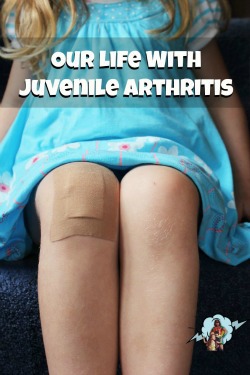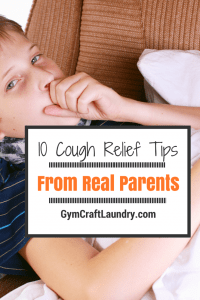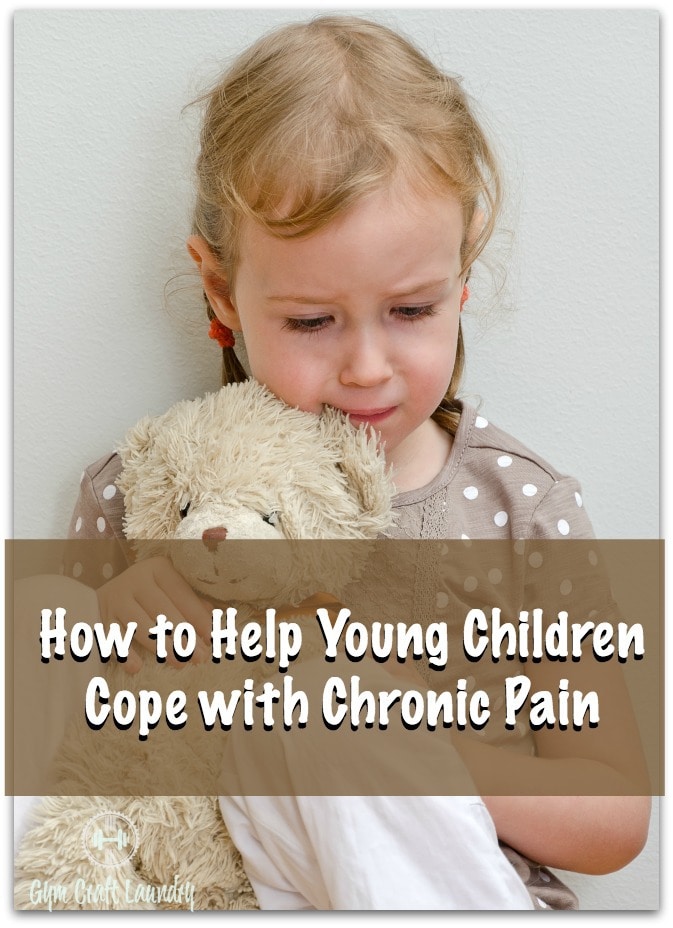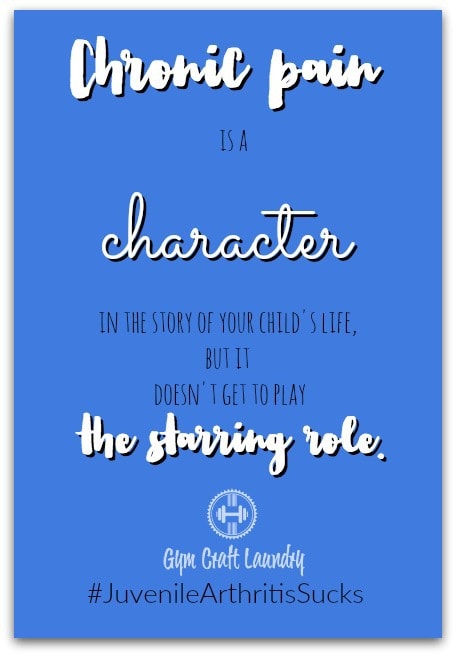There are few things in this world more heart wrenching than watching your young child in pain. Moms are supposed to be able to fix everything. Those little pain wracked eyes plead with you to take it away but when it comes to chronic pain–you just can’t.
This is the case with Juvenile Idiopathic Arthritis.
When the disease is flaring and the affected joints are inflamed, moms throughout the country begin their pain relieving routine. Each JA mom has one. When Pea’s legs are hurting, I give her the NSAIDs that she is prescribed (if she hasn’t had the morning or evening doses yet.) I elevate her legs with small pillows under her knees. Either an ice pack or a heating pad are slipped on top of the pillow and under her knees, and we wait it out.
Normally the morning pain and stiffness eases by noon. Keep in mind, I am not a doctor and each child’s Juvenile Arthritis presents differently. Discuss your routine with your Pediatric Rheumatologist.
This is a list of practical parenting tips that I wish I had that goes beyond the actual pain management portion and focuses specifically on the emotional toll that chronic pain can have on a child.
Each parent reacts to seeing their child in pain differently. Some parents become ultra over protective; some excessively permissive. In the midst of hospital visits, doctor’s appointments, labs, and the fear and uncertainty of a new diagnosis, we get caught up in learning what we can about the condition and managing the symptoms. I, for one, was focused on fighting the daily fires and not on the psychological effects that flares of pain and swelling would have on Pea.
Recently, when caught up in the crankiness that comes hand in hand with the pain, Pea began to wail about how unfair it is that she is so different. What started as complaints about the unfairness of having legs that always hurt and rashes that itch spiraled into sobs over how much smaller than all her friends she is and how even her long hair (which is normally her source of pride) made her different from everyone. “Why do I have to be the different one?” she cried to me.
I hadn’t thought about how to help her cope with the pain–and I should have. I was focused on easing the pain not helping her accept it as a part of her life.
Tips for helping your child cope with chronic pain
- Acknowledge and validate your child’s pain, but do not dwell on it or emphasize it. Chronic pain is a character in the story of your child’s life, but it doesn’t have the starring role.
- Focus on the child and not the illness. Children handle their chronic pain better when their parents don’t fixate on the pain.
- Normalize the pain. Chronic pain and inflammation affects the ability of a child to do many day to day activities. Don’t allow the pain the be a reason for “special allowances.” Dealing with bouts of pain are the new “normal.”
- Maintain structure and routine as much as possible. When parents break their own rules because of varying reasons, such as misplaced self-guilt or pity, you are unknowingly communicating to the child that something is wrong. Although allowing your child to eat extra sweets because they are sick may seem like a nice gesture, it is communicating instability. It can also have negative affects on how “well” siblings view their own worth in the family.
- Do not take over tasks that the child normally does and can still do despite their pain. It may seem like a small thing but it hints to the child that they don’t have the ability to do it themselves. This is especially true if it is something you refuse to do for your child when they aren’t in pain but then do it for them when they are. This undermines their independence and erodes self confidence.
- Emphasize individual differences and positive self awareness. Nobody can beat Pea at hide and seek. Her size is a huge advantage. She has hidden behind a throw pillow undetected! I do my best to emphasize everyone’s differences in a positive manner so she doesn’t come to feel like she is the only one that is different.
- Try to offer alternative activities rather than allow your child to just avoid situations because of their pain. If she can’t walk long distances, rather than allowing her to stay home watching tv, I push her in her stroller. Sure she can sit at home but she would still be in pain. She may be in pain sitting in the stroller while visiting the zoo, but at least she gets to enjoy the fresh air and the animals.
- I also try to have her offer suggestions for things to take her mind off of the pain. (She almost always asks for a popsicle to make her feel better.) A measure of age appropriate control helps my daughter feel less powerless against her arthritis. Little gestures, like allowing her to hold the dosing cup with her medication in it for her to drink herself, gives her a sense of control over her situation.
- Foster creativity and self expression. Pea loves to sing and create. We craft or do art activities to distract her from pain and keep her busy when she is at home.
- Encourage physical activity so that the child builds confidence in their body’s ability. The goal is to support the child, while also allowing them to learn how to live life while in pain.
- Be a good pain role model. If you face plant in the street while rollerblading beside the kids on their bikes–yes I did this–then brush yourself off, clean up the blood, allow yourself to rest and recuperate, and then go about your daily business without a huge Broadway production filled with tears and sorrowful songs.
- Your kids look to you for clues on how to interpret and react to situations. Their level of stress is based on that interpretation. Acting in great distress will lead to a child that is stressed. Keep your worry and distress to yourself.
- Take care of yourself. Take time to rejuvenate and relieve your stress.
- Find support from other parent’s going through similar circumstances. Facebook groups are a perfect way to connect with other JA parents.
- Forgive yourself. You WILL forget many of these tips when you are in the thick of it. You will be worried, busy comforting and nurturing your child, and doing everything else Moms have to do.
It is difficult for adults to cope with chronic pain. As a mother, I want to support my child while helping her develop a positive sense of self. Confidence can help mitigate the feelings of despair that often afflict chronic pain sufferers. There are times when my daughter seems to have an overabundance of confidence then times when the pain and frustration get the best of her.
Want to know more about JA and helping your child cope with pain?
Understanding Juvenile Arthritis and common myths
Read more about our journey with Juvenile Arthritis.
 |
 |
 |


Savannah says
Oh, my goodness. I honestly did not know children could even be diagnosed with arthritis. How trying and exhausting this battle must be for your entire family. The short times that I have seen my boy in pain have been heart wrenching, so I know a chronic type of pain must be extremely tough to handle as a mother. You sound like such an incredible mom, and nurse, for your little girl, though and she is so lucky to have you there for her. Teaching children to cope, with whatever it may be, is such an important lesson that we, as parents, must teach. And it sounds like you are doing a wonderful job. Thanks for sharing <3
Herchel says
Thank you for your kind words, Savannah!
Kristen says
This must be so tough for all of you! Hoping you and she find some relief soon!
Kristen recently posted…The One Word I Try Like Hell Never to Say
Lou Lou Girls says
Hello cute lady! I love this. Wonderful post.Pinned. We really appreciate you taking the time to stop by our party. It wouldn’t be a party without you. Please join us on Monday at 7 pm. Happy Sunday! Lou Lou Girls
Lou Lou Girls recently posted…Craig Claiborne’s Smothered Chicken
Herchel says
Thanks girls! I will be sure to drop in tmw!
Katelyn F says
I am so sorry you even have to deal with this! And sorry about your epic fall on your face. ouch. You seem like just the right mom to handle it though.
Katelyn F recently posted…Apparoo App of the Week – Blinkbuggy
AwesomelyOZ says
That is so difficult – I can’t even imagine seeing my little boy in that kind of pain constantly.. Glad you and Pea are able to find something that works. Do you know how long that is prevalent for? Is this condition permanent or will it eventually go away? At least she has a great mom to help her through it!! I think that parents being a good pain role model is definitely important. Best of luck and hope it gets better for your little Pea Herchel. Happy Hump Day! -Iva
AwesomelyOZ recently posted…The Friendship Conundrum
Michelle says
I’m so sorry Pea is dealing with this (and you as well). It’s hard when your kid is hurting, and even harder when you know it’s long term. I’m sharing…hopefully your tips will help others.
Michelle recently posted…Clean Burnt Pots and Pans in Minutes
Herchel says
Thank you, Michelle. It wasn’t until I started blogging that I connected with other moms who have gone through it. The first couple of years would have been much less stressful if I had found support earlier.
Tanya M @ Mom's Small Victories says
These are great tips. I am sorry that your daughter has JA. I was diagnosed with Rheumatoid arthritis shortly after my first son was born and it is still my biggest fear that one of them will inherit RA from me. It is hard enough for me to deal with the pain and sometimes I just need a good cry and someone to hug. It is hard to be strong all the time. Thanks for sharing with #SmallVictoriesSunday #linky 14. Pinning and sharing.
Tanya M @ Mom’s Small Victories recently posted…Clean Sweep ARC Challenge May 2014
Herchel says
Thank you Tanya. My mother has RA and struggles with the pain too. I am very sorry you are dealing with it too. Stay strong and when you need to vent or want support, reach out. There are many that will lend you their strength. I am still praying for a cure. xo
Tanya M @ Mom's Small Victories says
Me too. Thanks for the encouragement and sharing your experience with us.
Tanya M @ Mom’s Small Victories recently posted…Clean Sweep ARC Challenge May 2014